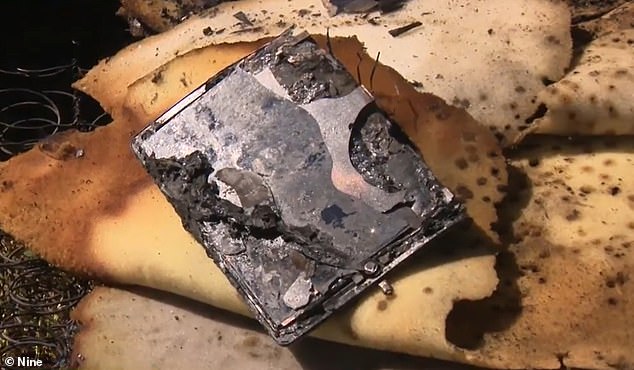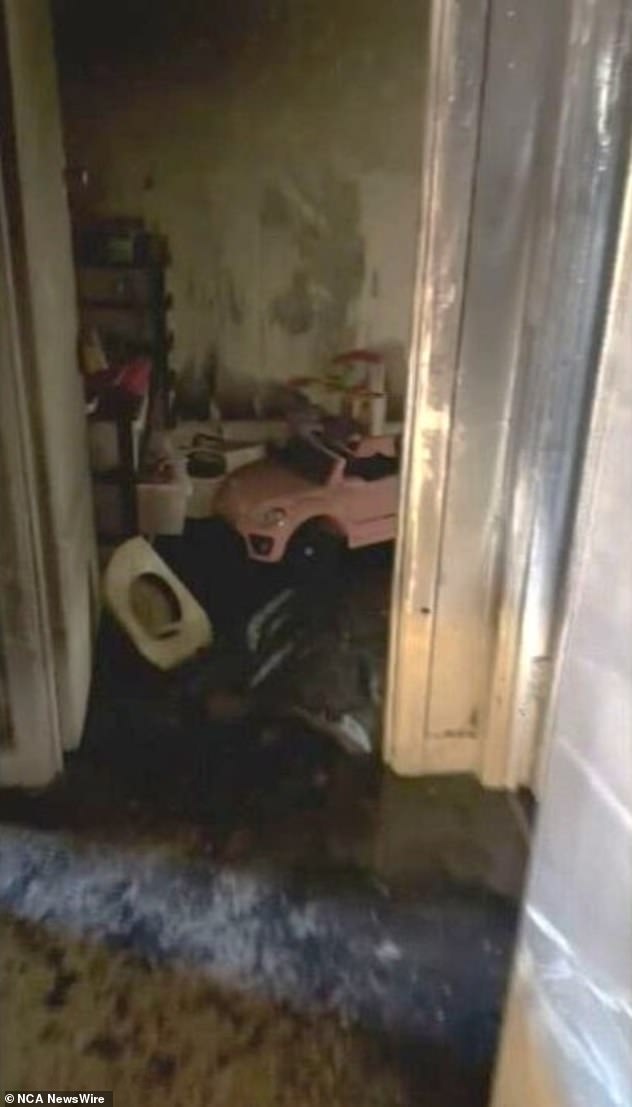A hard-working Australian couple lost their beloved cat and their family home after an iPad caught fire while charging, causing a blaze.
The raging blaze has prompted a fire chief to reiterate a warning that appliances should not be left plugged in while no one is home.
The young family is also reiterating that message, after the Apple charger and iPad destroyed their home and caused the death of their cat.
The fire broke out at the couple’s home in Jarrahdale, about 45 kilometres southwest of Perth, at around 1pm on Thursday.
Jarrod and Java King, their three-year-old daughter and their dogs were not physically injured, however their cat was killed.
The house was destroyed when the iPad, which was charging in her bedroom, caught fire.
“It can happen so quickly that it’s pretty scary,” King said. 9News.
The fire engulfed the bed and destroyed the house.
Perth couple Jarrod and Java lost their home after a charging iPad caused a terrible house fire (the couple are pictured holding the damaged Apple device)

The couple had been charging the iPad (pictured) with an Apple cable in their bedroom.
“It all seemed to happen pretty quickly, in about half an hour everything was gone,” he said.
“It’s something you think is very normal and it can do a lot of harm.”
They say they had purchased the new device only about a year ago and were using the Apple charger that came in the box.
Her daughter’s toys were destroyed.
Mark Hayes, a spokesman for Western Australia’s Department of Fire and Emergency Services, said he personally charged his phone near the kitchen sink so there was a source of water nearby in case the phone overheated and caught fire.
“Know what you’ve put on charge and turn it off before you leave the house,” he said.
‘Don’t leave anything charging while you’re not at home.’

Her daughter’s toys were destroyed in the fire at her Jarrahdale home (pictured)
Lithium-ion batteries are in millions of devices across Australia, including rechargeable vapes, laptops, phones and tablets, games consoles, electric scooters and camping equipment.
‘All battery types present risks, however lithium-ion battery failure can be particularly catastrophic, due to the flammable and volatile liquid electrolyte solution within a lithium-ion battery,’ an ACCC report stated in 2023.
There is no single, consolidated national database of lithium-ion-related fires because each state has its own fire service.
However, in 2023 there were more than 200 lithium-ion battery fires in New South Wales.
Using a charger other than that manufactured by the device manufacturer and overcharging the device seriously increases the risk of fire.


